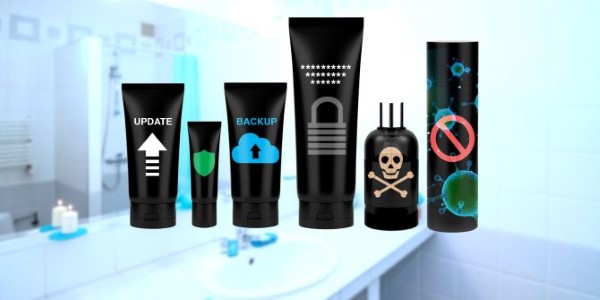University of Redlands Emergency Alert System
Alert Received: . For more information, visit: https://www.redlands.edu/alert/
University of Redlands
- Home
- Information Security Office
- Cyber Hygiene
Good cyber hygiene is a general practice that can help keep you safe and secure online, but there are several best practices to ensure your cyber hygiene is the best it can be. Here are seven essential steps.

Step 1: Install reputable antivirus and malware software
The first and maybe most important step is installing some type of endpoint protection software. It’s a vital component of your overall cyber hygiene in its protection against security breaches, along with other threats.
Step 2: Update software regularly
Update your apps, web browsers, and operating systems regularly to ensure you’re working with the latest programs that have eliminated or patched possible vulnerabilities.
Step 3: Set strong passwords
Setting strong passwords for all of your devices is essential. Your passwords should be unique and complex, containing at least 8 or more characters along with numbers, symbols, and capital and lowercase letters. Changing your passwords regularly — and never sharing or reusing the same password — will help prevent hackers from figuring them out.
Step 4: Use multi-factor authentication
Two-factor or multi-factor authentication is a best practice that offers an additional layer of protection. Two-factor authentication usually requires you to submit your password and username along with a unique code that is sent to your cell phone.
Step 5: Employ device encryption
A good practice is to encrypt your devices and other media that contain sensitive data — including laptops, tablets, smartphones, removable drives, backup tapes, and cloud storage.
Step 6: Back up regularly
It’s also smart to keep your files secure by backing up important files offline, on an external hard drive, or in the cloud. This can help protect against many types of data loss, especially if hackers gain access to one of your devices.
Step 7: Keep your hard drive clean
Remove unneeded or unnecessary files. It’s important to ensure your personal or sensitive information doesn’t get passed along. If your device is hacked, a clean hard drive means less information that’s accessed.
Remember, it’s smart to practice good cyber hygiene habits. If you set up your computer and other devices with reputable antivirus programs, update them regularly, create strong passwords, and keep everything clean, you’ll be on your way to creating cyber habits that may help keep you safe and secure online.